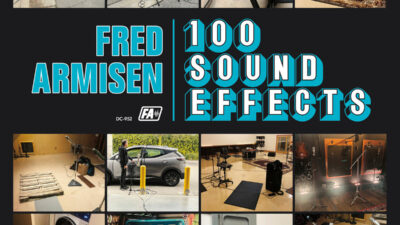Insightful late-career IDM, focused elder statesmen hip hop, and some satisfying post-hardcore melodies dominate this weeks music roundup!

Autechre – SIGN
Genre: IDM
Favorite Tracks: “F7,” “si100,” “Metaz form8,” “sch.mefd 2,” “r cazt”
Even though I was exposed to Intelligent Dance Music as a teenager, it took me the better half of a decade to warm up to the notably pretentious genre. Last autumn, I finally fell in love with the glitchy, uncomfortable black hole that is the electronic void I was once so put off by. Suddenly, the classical beauty in Aphex Twin’s alien, modernist works beamed through. Clark’s gripping intensity felt like a roller coaster instead of a crashing airplane. Seefeel played like one of the shoegaze bands whose closed-eye color schemes kept me sane on many a between-classes college walk.
Even as I spent hours peeling back the layers on the massive onion that is IDM, I’ve still yet to understand the appeal of Autechre, one of the genre’s most influential and prolific groups. INCUNABULA’s techno sounded like the digital dystopia that was frying my brain every time I logged onto social media, and TRI REPETAE’s Karlheinz Stockhausen-y experimentation was like sandpaper to my ears. The NTS sessions were too plentiful, their ARTIFICIAL INTELLIGENCE tracks too computerized, and even AMBER, with its gorgeous album art and dance-set-friendly techno cuts, just didn’t hit quite as hard for me as it seemed to for everyone else. Sean Booth and Rob Brown’s latest release, SIGN, is their most cohesively accessible record to date, and even though it still doesn’t make much sense, offers a lush, navy sonic palette that subtly sheds Autechre’s playful brutalism.
Opener “M4 Lema” shifts from drum-driven downbeat acid techno to watery ambient with the rapid pace of a camera’s shutter going off. At almost nine minutes, it’s the record’s longest track, a welcome respite from their often 10-plus-minute digitized odysseys. Whether or not they are a household name, Autechre’s profound impact on electronic music is undeniable, and traces of PC Music and hyperpop shine through on moments like “si100” and “gr4.” On Autechre’s prior releases, the music was either so intense that listening to it felt like dying, or so gentle that it was barely audible. On SIGN, Autechre embraces a pleasantly neutral ambience that hovers at a comfortable mezzo forte throughout the majority of the record. “F7,” “Metaz form8,” and album closer “r cazt” all utilize thick, synthesized layers to evoke the most durable elements of vaporwave or even REPLICA-era Oneohtrix Point Never. One of my favorite things in music is when a legacy artist releases an album that feels influenced by newer genres they helped to spawn, and SIGN’s best moments provide wonderful examples of this phenomenon.
SIGN might be the most sensible Autechre release in a long time, but Booth and Brown are only so forgiving. Although the instruments are prettier and the songs are shorter, many moments on the record still don’t quite feel like music. “esc desc” is overwhelming, with its jagged sawtooth synth stabs, and “th red a” plays like three songs competing with each other at once. Often, it feels like tracks are random, algorithm-generated jams that dwell in a far away galaxy without keys and time signatures. There is genius to SIGN’s dissonance, but it’s the same breed of hyper-smart trickery that freaked me out on Autechre’s most notable releases. Ultimately SIGN is the rare Autechre record that takes it easy on its subjects. While the duo’s most influential records play like mental abuse, SIGN plays like a challenging riddle. [Ted Davis]

Black Thought – STREAMS OF THOUGHT, VOL. 3: CANE & ABLE
Genre: Rap
Favorite Tracks: “State Prisoner,” “Quiet Trip,” “We Could Be Good,” “Fuel”
The Roots are one of my first musical loves, my first concert, and an early introduction to complex, mature themes in music. While that affinity is largely owed to the musical genius of drummer, producer and heartbeat of the Roots, ?uestlove, my appreciation for the craft of rapping is a debt owed to Black Thought. ?uest drove much of the Roots’ sonic evolution, but Thought played the workmanlike anchor across evolutions of their sound and membership. Through a career spanning nearly 30 years, Thought didn’t stray from the band until 2018 with the first volume of STREAMS OF THOUGHT, a dense but short project that hewed closely to its title in concept, mostly eschewing structure in favor of a single, elongated verse per track. VOL. 3 feels like his first true stab at a solo album, and with it, Thought faces several hurdles that had me pressing play with some trepidation.
Rap is a difficult game to age in; trends change fast, and consistency and longevity rarely go hand-in-hand seamlessly. I approached the record fearing Thought’s possible preoccupation with legacy—Eminem is the clearest negative comparison here. But my fears were thankfully unfounded. STREAMS OF THOUGHT, VOL 3 is a focused, impressive listen that sees Thought showcase his skills while pushing his sound to new, interesting places. It would be wrong to say that Thought has been freed from the Roots or that they held him back in any way, but after decades as the most consistent and recognizable element of a group, he is free to surround himself with new influences. He takes full advantage of this freedom for the first time on VOL. 3, calling upon a diverse and talented list of collaborators, who in turn save Thought from bludgeoning the listener with unbroken stretches of tangled, aggressive rhyming, a fault of many lyrically dexterous freestylers and battle rappers who struggle to make compelling records away from the crucible of the live mic.
Guests define the album as much as Thought’s raspy, bulletproof delivery, and most complement him beautifully. He goes three-for-three with left-field collaborations with Portugal. The Man and The Last Artful, Dodgr. “Quiet Trip” is one of my favorite tracks this year, with a simple but powerful duet chorus and beautiful production, and “Fuel” ups the intensity to close the album. “Good Morning” calls upon Pusha T and Killer Mike, a knockout combination of would-be veteran rhymers playing the rare understudy to the legendary Thought. CS Armstrong and OSHUN are funny and soulful in equal measure on “We Could Be Good”, while Thought delivers a sober and mature examination of the emotional work required in a long-term relationship. Crushingly, the only collaboration that doesn’t land is the one I had the highest hopes for. ScHoolboy Q sounds utterly lost on “Steak Um,” fumbling a golden opportunity alongside an all-time great on a track which begged for Q to snarl and seize on the righteous anger Chappelle’s insightful introduction and Thought’s own lyrical tenacity served up. Instead, his verse never really gets going, his approach halting and awkward.
STREAMS OF THOUGHT, VOL 3 is most of what I wanted out of late-career solo material from Black Thought. His iconic flow and tightly packed rhyme schemes are given time to shine while he avoids sounding like he has anything left to prove as an artist. The subject matter is engaging and topical with time for both personal and general insight, and unexpected yet complementary collaborations break surprising new ground for an MC who has seen it all. [Corey Guen]

Touché Amoré – LAMENT
Genre: Post-Hardcore, Alternative Rock
Favorite Tracks: “Come Heroine,” “Exit Row,” “A Broadcast,” “I’ll Be Your Host”
CARRIE & LOWELL. BLACKSTAR. YOU WANT IT DARKER. A CROW LOOKED AT ME. There were several decade and career-defining records written about death between 2015 and 2017, and Touché Amoré’s STAGE FOUR got overshadowed as a result. The post-hardcore critical darlings always knew how to make you feel with their confessional, no-holds-barred approach to writing, yet it was ocassionally hard to tell what they were actually singing about. Though they’ve always had a great rhythm section and a unique screamo delivery from Jeremy Bolm, which conveys a lot of pain without feeling whiny or oversold, the impact of records like IS SURVIVED BY was blunted by an apathy toward structure or the vicious intensity of, say, a Nails record, which excuses less developed songs. STAGE FOUR changed all that by focusing on a specific topic: the death of Jeremy Bolm’s mother. Their latest record, LAMENT, applies raw lyrics, anguished vocals, and a new grasp of melody and hooks to create an absolute gut-punch of a record that holds up alongside the one I reviewed in my first piece for Merry-Go-Round’s predecessor, Crossfader.
Those turned away by STAGE FOUR’s polish will be even more disgusted with LAMENT. Though there are still raucous moments like the opener “Come Heroine” and “Exit Row,” the album continues the path towards emo-tinged alternative rock like The Wonder Years, with more liquid tones, linear progressions, and slower tempos and interludes. In addition, there are more instrumentally diverse moments like the twinkling pedal steel and gentle acoustics on “A Broadcast” that resemble a gloomy country tune, the closing ballad “A Forecast” that opens with a minute-and-a-half of just piano and vocals, and the vocoder vocals on the messy “Deflector” that resemble “Snibe” by Sunny Day Real Estate. Speaking of, Touché Amoré have switched producers from Brad Wood to Ross Robinson, whose work spans from hugely influential records like RELATIONSHIP OF COMMAND to the likes of The Used, Limp Bizkit, and Korn. The trends toward softer sounds as a whole is fine because the performances are always on point with boundless energy, the guitars provide plenty of texture and interplay with each other, and the rhythm section is always dynamic and engaging. The biggest loss in this production downgrade comes in the drums, as the percussion can feel plunking and flat on the opening of “Feign,” and the cymbal crashes get crinkly and mushy on “Lament.”
Though it doesn’t have the cohesion of STAGE FOUR, lyrically LAMENT still carries a lot of sentimental weight with its blunt, simple language and turns of phrase like “A last responder to my own self-interest” on “Deflector,” and “Is there a way to feel free / Without being someone else?” on Reminders. Though the topics are not new, Bolm’s anguished performance breathes life into them. Songs analyzing an artists’ own image and persona tend to get masturbatory and obnoxious for those not in their cult of personality, and yet Bolm’s best material stems from this idea. Album highlight “I’ll Be Your Host” addresses how, in the wake of STAGE FOUR, many fans tried to reach out to them with stories of family members passing and Bolm felt uncomfortable being their host. It’s a perfect companion to the previous record and a fascinating portrayal of the limits of art’s empathy and using real-life tragedy as part of art, and the cherry on top of a record that makes changes yet still delivers what makes Touché Amoré so compelling. [Blake Michelle]
















Comments